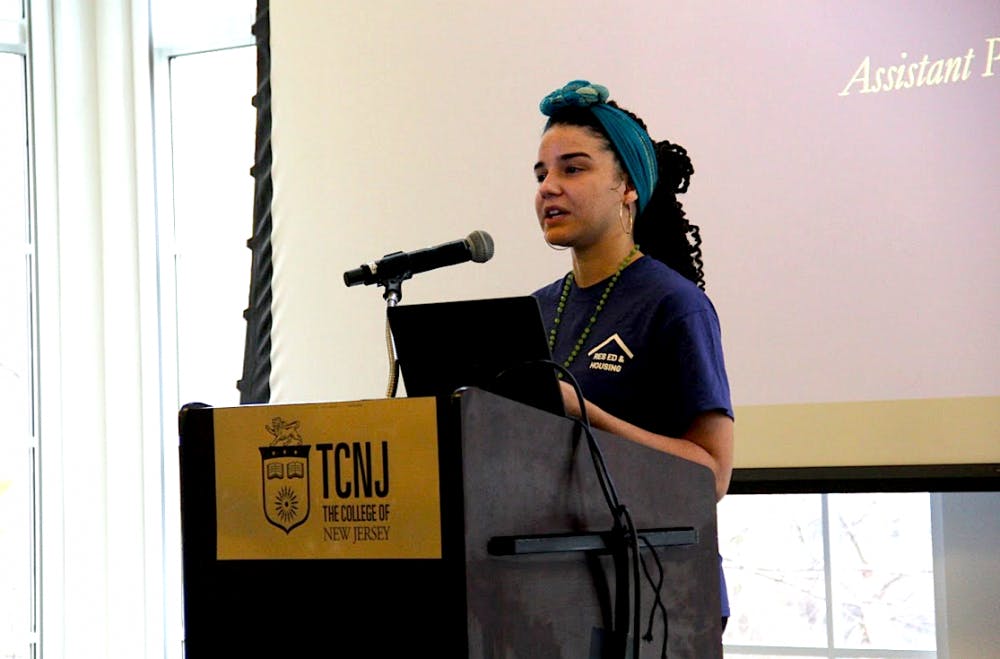By Julia Meehan
Photo Editor
When Ana Gutiérrez first immigrated to the United States three years ago, she was still learning English, and college wasn’t really on her mind. Now as a sophomore communications studies major, she proudly shared her journey to college in front of a large room of students, faculty and alumni.
Alumni, students and staff gathered together in the Education Building on Feb. 26 for the inaugural First-Generation Celebration.
The energy was friendly, professional and celebratory as guests grouped together at blue and gold clad tables. Ivonne Cruz, the Interim Vice President for the Office of Institutional Diversity, Equity, and Inclusion, addressed the crowd in her welcoming remarks.
“This turnout just goes to show that we first gen-ers are a full community here at the College,” Cruz said.
Several speakers took to the podium to share stories detailing their personal journey to the College and the obstacles they’ve faced along the way. Gutiérrez began her speech after a welcoming round of applause.

“I am an immigrant,” Gutiérrez said. “I moved here only three years ago from the Dominican Republic, and higher education was not an option on the table when I first came here.”
Gutiérrez then referenced the phenomenon known as “imposter syndrome,” a feeling of estrangement and lack of fitting in that many first-generation students feel when they arrive on campus.
“Imposter syndrome is real,” she said. “You can look around and feel like you don’t belong and it still kicks in some days, but know that we have people on this campus who want to see you succeed.”
President Kathryn Foster also shared her reflections on feeling like an imposter in certain situations.
“For me that would be in a church or any place of worship,” Foster said. “But when you become familiar with a place and when the borders become porous, it makes me very happy. For you all to see the potential of this place, I am so thrilled to have you here.”
After the addresses, lunch was served and people mingled between their tables, happy to see other first-gen students and supporters wearing stickers that read“Proud First-Gen” or “First-Gen Supporter.”
“When I first came here well over half of the students were first-generation,” said Glenn Steinberg, an English professor who has been at the College for over 20 years and is a first-generation college student himself.
In this year’s freshman class of 2023, 25 percent of students identified as being the first generation in their family to go to college, according to an email Foster’s office sent out about the event.
“I like having first-generation students in classes,” Steinberg said. “There’s something really cool about opening up the horizons for someone and to show them a bigger and wider world that’s out there.”
Future events for first-generation students are in the works. Cruz mentioned putting something together for Welcome Week, citing it as the prime time when “students are trying to see where and how they fit in with their peers.”
The Office of Institutional Diversity, Equity, and Inclusion and the Division of Academic Affairs are increasing their efforts to make first-gen students feel seen and heard.
“If imposter syndrome gets to you, take a look at the people around you in this room and they will help you,” Gutiérrez said.







